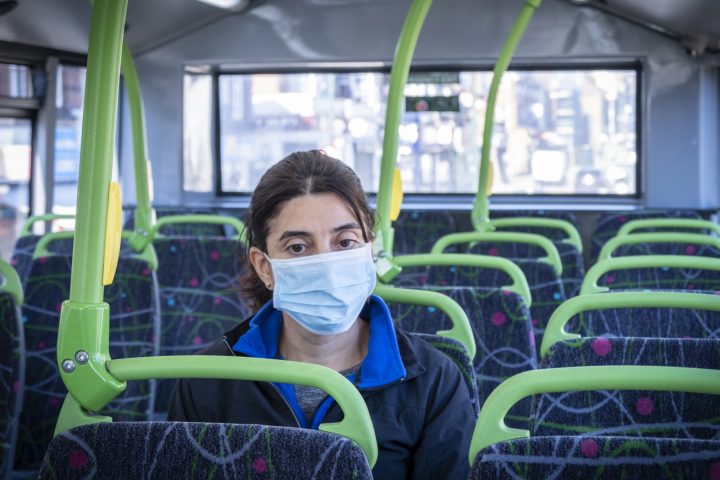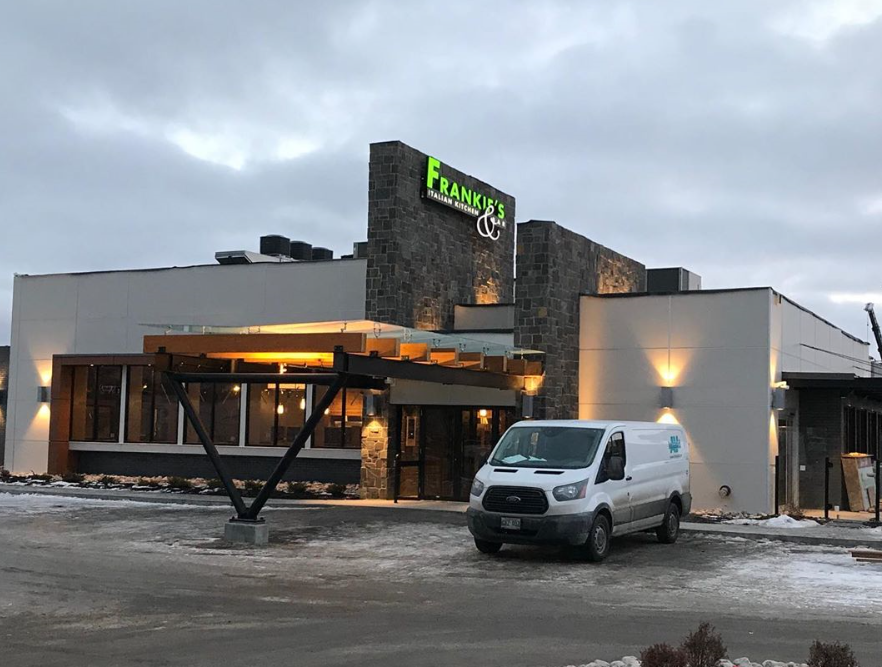Increased public health restrictions in the Winnipeg metro region begin today — masks are now mandatory in all indoor public places, while a ban on gatherings of more than 10 people indoors and outdoors begins.

The increased restrictions come amid a rise in positive COVID-19 cases in Winnipeg in recent weeks.
The province said Winnipeg, along with the municipalities surrounding the city, will move to a level orange restriction Monday, under Manitoba’s colour-coded pandemic response rating system.
The ramped-up restrictions were announced Friday when Manitoba’s chief public health officer, Dr. Brent Roussin, called a last-minute press conference at 1:30 p.m. That day, the top doctor announced 54 new cases of the novel coronavirus, 44 of which are in Winnipeg.
Saturday, the province announced 65 cases, 56 of which were in Winnipeg. Then Sunday, Manitoba saw another 51 cases, 36 of which were in Winnipeg.
The new restrictions will be in place for at least four weeks, including Thanksgiving on Oct. 12, Roussin said Friday.
Selkirk mayor Larry Johansson told 680 CJOB his city serves as a hub for the Interlake, and isn’t like the other bedroom communities, so it shouldn’t fall under the Code Orange with the rest of the Winnipeg Metro area.
“Our team has worked very hard — very diligently — on keeping our community safe,” he said.
Johansson said he looks south to Steinbach as an example of a similar community which isn’t looped in to the Orange level, but where the community is buying in to the new rules with little pushback.
“We have industry, we’ve got commerce, housing, we’ve got medical, strong recreation — so we’re not a bedroom community,” he said.
“It’s a reset for everyone,” he said, “even established restaurants that have been around for 20-30 years.
“For us, it was all new. I had nothing to compare it to because we’d only been open for a few weeks or months. This was our first summer — and it was a COVID summer.”
Aiello said despite the limits on in-person customers, takeout remains a popular option for many who are socially isolating, and if there’s one benefit to the whole ordeal, it’s that the industry might take on more stringent health and safety routines going forward.
“It really comes down to making sure of things now — and that probably makes a lot of our places better because of it.
(There’s) more sanitizing going on… procedures in place to keep everybody safe, so it’s not necessarily a bad thing.”












Comments